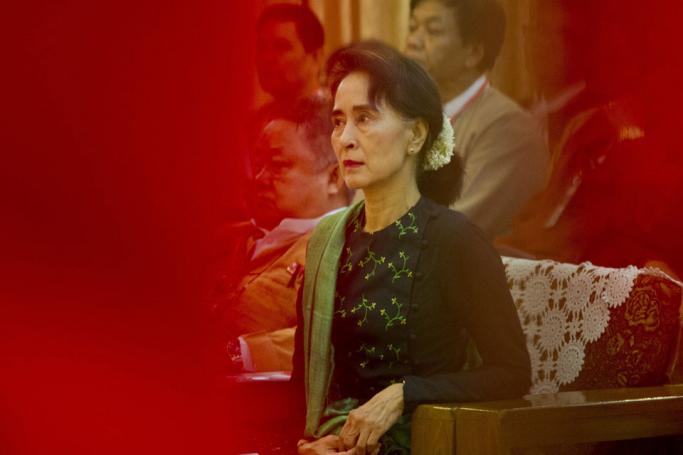A Myanmar junta trial of Aung San Suu Kyi will run longer than scheduled, her lawyers said Monday, with the prosecution still to call nearly two dozen witnesses.
The coup-ousted leader, who is under house arrest, faces an eclectic raft of charges in a trial her legal team had expected would be wrapped up by the end of July.
But with 23 witnesses still to go, "even the close of the prosecution side won't be possible" by then, said her lawyer Khin Maung Zaw.
Suu Kyi was deposed by the military in February, sparking a mass uprising and a brutal crackdown. More than 880 civilians have been killed by the junta's forces, according to a local monitoring group.
Cut off from the outside world except for brief meetings with her legal team and her court appearances, Suu Kyi appeared at the specially set up tribunal in the capital Naypyidaw on Monday to hear four junta witnesses testify against her.
She is charged with flouting coronavirus restrictions during 2020 elections that her National League for Democracy (NLD) party won in a landslide, and illegally importing and possessing walkie talkies.
The Nobel laureate, 76, also faces separate charges of accepting illegal payments of gold and violating a colonial-era secrecy law. She could be jailed for more than a decade if convicted on all counts.
She was alert and appeared in good health at Monday's hearing -- which also heard testimony that former president Win Myint broke coronavirus regulations -- her lawyer Min Min Soe told AFP.
Last month, Suu Kyi used her first in-person court appearance to voice defiance against the junta, insisting that the NLD would "exist as long as people exist because it was founded for people".
© AFP












